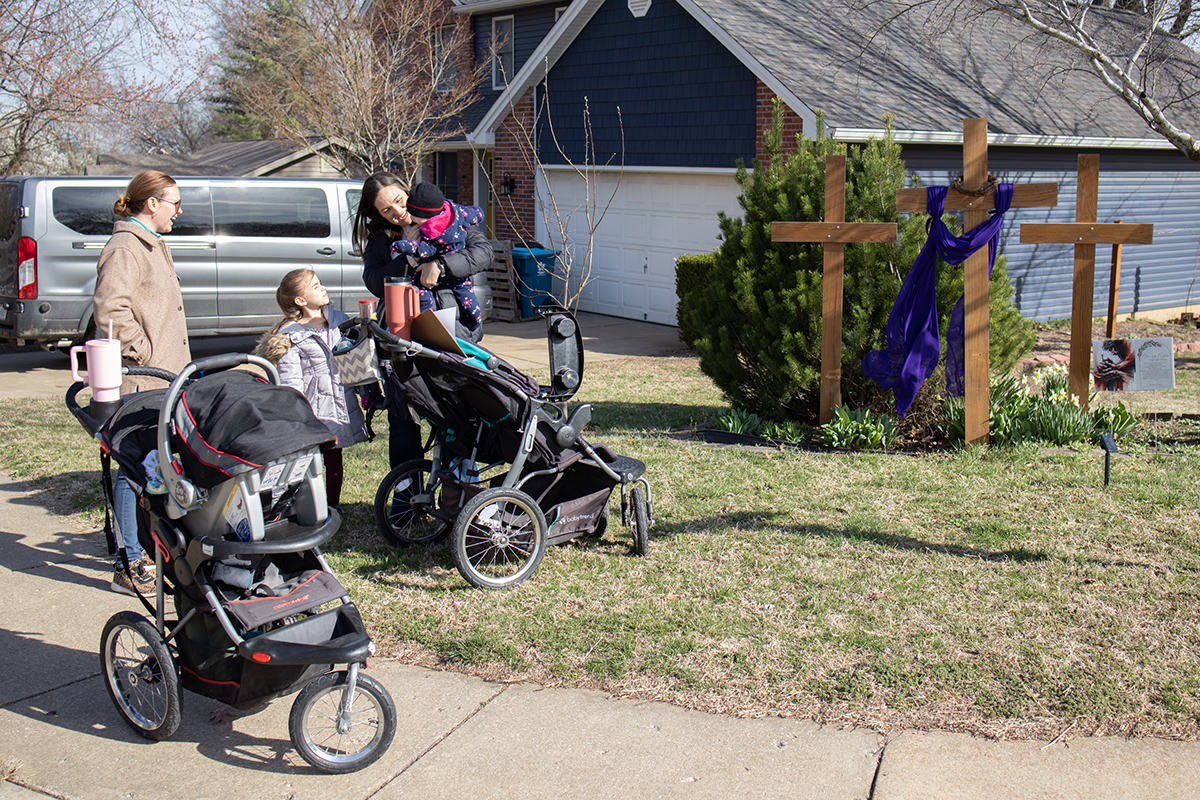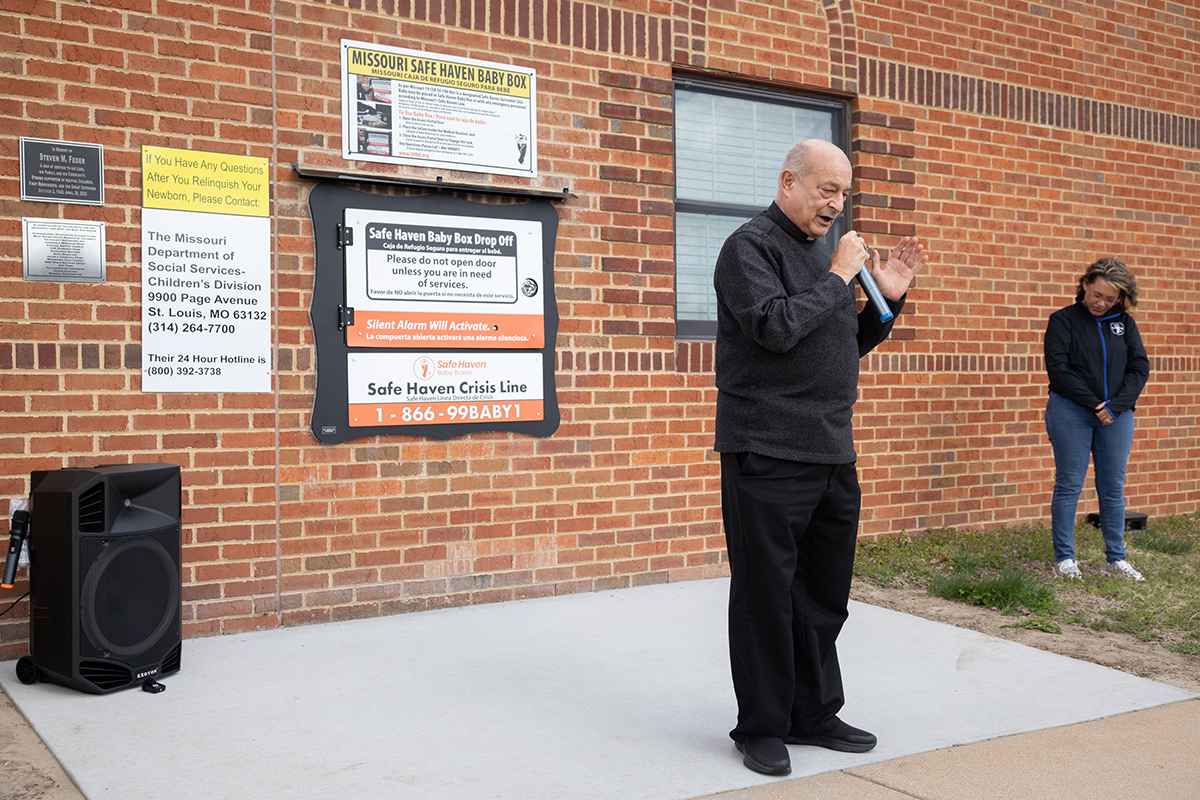Abortions continue to decline in Missouri, state representative credits pro-life legislation

Rep. Mary Elizabeth Coleman, who helped craft language on sweeping abortion bill, was participating in her first March for Life

Missouri Rep. Mary Elizabeth Coleman, who made her first trip to the March for Life in Washington, D.C., this year, said she was impressed with the “incredible scope” of the march, which every year draws thousands of people.
Coleman, a member of St. Joseph Parish in Imperial, has served the Missouri House of Representatives for the 97th district in Jefferson County since 2019. She worked with other legislators to draft HB 126, also known as the “Missourians Stand for the Unborn Act,” a sweeping measure to further restrict abortions in Missouri and protect the health and safety of pregnant women.
“There are so many people from all over the country of all ages, and to see it first-hand, the scale is unreal,” Coleman said as she marched along Constitution Avenue, holding a sign that read, “Women deserve better than abortion.”
Coleman cited a recent preliminary report from the state health department that showed another drop in abortions in 2019. She credited the passage of HB 126 in 2019, as well as the passage of another pro-life bill, SB 5, which passed in 2017 and amended Missouri law to require abortion facilities to be inspected annually and gives the Missouri attorney general greater authority to enforce Missouri’s abortion laws, requires abortion clinics to develop plans for managing medical emergencies, requires all fetal tissue (not just a representative sample) from abortion to be sent for pathology exam, and provides whistleblower protections for employees involved with abortion, among other provisions.
“Those are really changing the way (Planned Parenthood) is doing business,” Coleman said.
A preliminary report from the Missouri Department of Health and Senior Services shows that there has been a 54 percent decrease in abortions in Missouri from 2018 to 2019. The report, which was released by the department to the pro-life organization Operation Rescue, shows that there were 1,354 abortions preformed at Planned Parenthood in St. Louis, the state’s only remaining abortion facility, from Jan. 1 through Nov. 15, 2019. In 2018, there were 2,910 abortions performed at three Planned Parenthood facilities, according to health department statistics.
The number of medication abortions decreased from 2,529 in 2018 to six in 2019, according to health department statistics. Planned Parenthood officials chose not to comply with a Missouri law that requires a pelvic exam prior to prescribing the abortion-inducing drugs to patients, and instead referred patients seeking medication abortions to one of its facilities in Illinois. Last October, Planned Parenthood opened a new facility in Fairview Heights, Ill., which offers surgical and medication abortions.
Coleman said there’s also been a push among abortion advocates for what she called self-afflicted abortions, or medication-induced abortions. “We have to prepare for post-abortion care, not only emotionally, but physically as well, as we’re going to see increased hemorrhaging and complications,” Coleman said. “It’s incredibly dangerous.”
Deacon Sam Lee, a pro-life lobbyist in Jefferson City, in a 2018 presentation at the Missouri Catholic Conference’s General Assembly, focused on a growing movement of pro-abortion advocates who promote how to obtain the pills used in a medication abortion — mifepristone and misoprostol — online and elsewhere.
Women worldwide and in the United States have self-administered a medication abortion outside of a formal health care setting, according to the Guttmacher Institute. The organization, which originally was founded as a research arm of Planned Parenthood, also has noted that there is an interest in learning more about self-abortion on the internet, and searches for information may be driven by adolescents and young adults facing an unplanned pregnancy.
In its research, Guttmacher noted that:
• In a 2017 survey of Google users in the United States who searched for terms related to self-managed abortion, over 70 percent of respondents were searching because they were pregnant and either did not want to be or were unsure about wanting to be, and over 80 percent of respondents were specifically seeking information on ”self-abortion” or “abortion pill.”
Coleman Missouri Rep. Mary Elizabeth Coleman, who made her first trip to the March for Life in Washington, D.C., this year, said she was impressed with the “incredible scope” of … Abortions continue to decline in Missouri, state representative credits pro-life legislation
Subscribe to Read All St. Louis Review Stories
All readers receive 5 stories to read free per month. After that, readers will need to be logged in.
If you are currently receive the St. Louis Review at your home or office, please send your name and address (and subscriber id if you know it) to subscriptions@stlouisreview.com to get your login information.
If you are not currently a subscriber to the St. Louis Review, please contact subscriptions@stlouisreview.com for information on how to subscribe.







